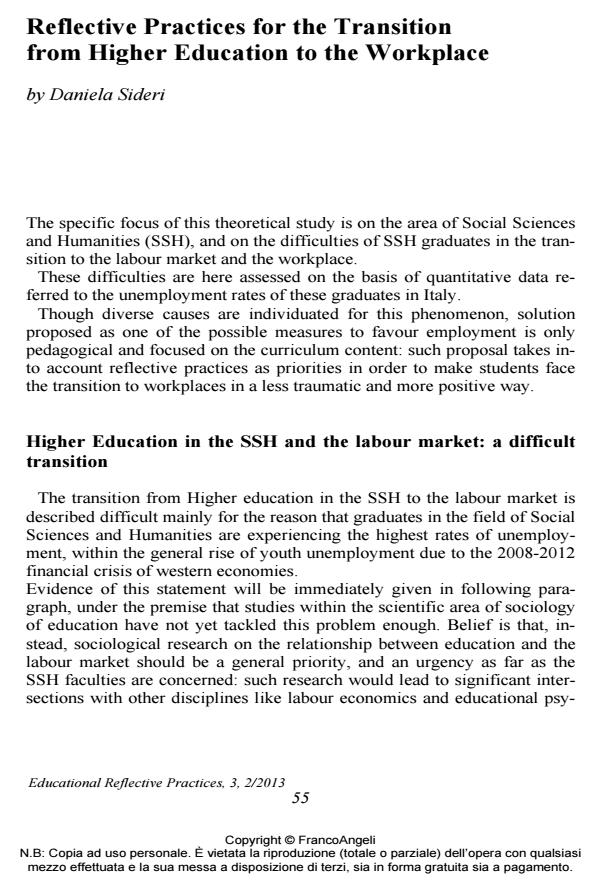Reflective Practices for the Transition from Higher Education to the Workplace
Journal title EDUCATIONAL REFLECTIVE PRACTICES
Author/s Daniela Sideri
Publishing Year 2014 Issue 2013/2
Language English Pages 15 P. 55-69 File size 589 KB
DOI 10.3280/ERP2013-002004
DOI is like a bar code for intellectual property: to have more infomation
click here
Below, you can see the article first page
If you want to buy this article in PDF format, you can do it, following the instructions to buy download credits

FrancoAngeli is member of Publishers International Linking Association, Inc (PILA), a not-for-profit association which run the CrossRef service enabling links to and from online scholarly content.
The specific focus of this theoretical study is on the area of Social Sciences and Humanities (SSH), and on the difficulties of SSH graduates in the transition to the labour market and the workplace. These difficulties are assessed on the basis of quantitative data referred to the unemployment rates of these graduates in Italy. Though diverse causes are individuated for this phenomenon, solution proposed as one of the possible measures to favour employment is only pedagogical: focused on the curriculum content, it takes into account reflective practices as priorities in order to make students’ transition to workplaces less traumatic and more effective.
Daniela Sideri, Reflective Practices for the Transition from Higher Education to the Workplace in "EDUCATIONAL REFLECTIVE PRACTICES" 2/2013, pp 55-69, DOI: 10.3280/ERP2013-002004